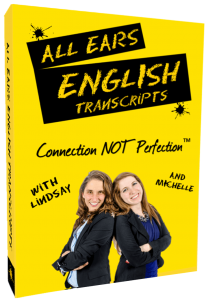
Have you heard somebody say that they “had a blast” in English at an event?
Does this sound confusing because you assume that a “blast” is a loud noise?
Here are some examples:
- I went to that party and it was such a blast!
- Did you see him at the party? He was absolutely blasted!
These are common situations where this word is used and it’s quite confusing.
This letter may help to highlight a question that you have had about this as well.
I love to listen your lessons everyday you are awesome and make me feel that to miss some words doesn’t make me a silly person even I’m so hard to myself when I can’t understand something after being working in a English office for 2 years and I’m still struggling.
I have a question about how to use the sentence “I have a blast” and the expression “you could get blasted” I think they are so different even they have similar words. Also what do you think could be a good exercise for me to improve only speaking even that I speak English everyday I’m still so insecure and afraid less.
This is a common question so today we’ll look at it more closely.
 Make sure you understand every word you hear on All Ears English.
Make sure you understand every word you hear on All Ears English.
Bring your English to the advanced level with new vocabulary and natural expressions.
Get the transcripts from today’s episode.
Learn to speak naturally with the American accent.
Click here to subscribe and save 50%
Always Look For Opportunities To Use New Phrases
First of all, always remember Connection NOT Perfection to try to reduce your fears.
Before we even get to the question remember that it’s always about doing your best and trying.
It doesn’t matter if you try out the phrase “I had a blast” and it’s incorrectly used the first time.
Try it again and see how it may come together later on.
Some Helpful Actions We Recommend:
- Try to find a conversation partner
- Meet up with this partner or somebody you can really talk to
- Get out and do things so you have as many ways as possible to connect with people
- Let go of your inhibitions for at least 10 minutes a day
There are always great ways to practice using phrases such as this or similar ones.
The key is to practice and then it becomes easier and more natural for you too.
Breaking Down This Different Use
Even if this seems like just a sound it’s actually a common phrase.
Here are a couple of ways that you may see this word used:
- I have/had a blast
- It was a blast- which can also mean I have/had a GREAT time! It’s very natural sounding and fits well into conversation.
- Example: I had a blast at the party. The music was totally my taste.
There’s also another way that the word “blast” can be used in a common phrase.
This one may not be used quite as much, but it definitely has its place:
- Get blasted/could get blasted
- Example: Wow they sure got blasted for breaking the rules. I could hear the yelling from here!
- Example: He drank so much that he got totally blasted!
In the first example it means to get yelled at. In this case it is used as an extreme reprimand and may be warranted, but it never makes the person feel good.
In the second example it’s about getting drunk.
If somebody drinks too much then they are considered to be blasted.
Other Ways to Use It
The meanings up above may be more slang, though they are used quite often.
You want to be sure that you understand the slang versions because you may be likely to use them in everyday and more information conversations.
There are other meanings for the word “blast” that exist as well. There are actually many that exist, but here we look at just a few of them.
- Explosion/loud sound- There was a huge blast and I saw my dishwasher was on fire!
- Loud sound specifically- Don’t blast your music late at night! The music was blasting and kept everyone up.
- Dictionary meaning – a strong gust of wind or air. The air conditioning was blasting, so I had to put on my sweater.
You may be more familiar with the traditional meanings, but remember that it’s about getting outside of your comfort zone.
Be sure to try using the slang version of this word in everyday conversation just as much as you use the traditional meaning.
Takeaway
Though some words may have multiple meanings, don’t let that scare you away.
It’s good to get comfortable with the traditional meanings because they are important.
Also be sure to get outside of your comfort zone and try the uses that come up in everyday conversation.
Once you get the hang of it then it will feel natural and you’ll have a blast with the various uses!
Are you taking IELTS? Get top tips and tricks to get your 7 or higher here.
Keep the questions coming–if you have a question please leave it in the comments below.
We’ll get back to you as soon as we can.








